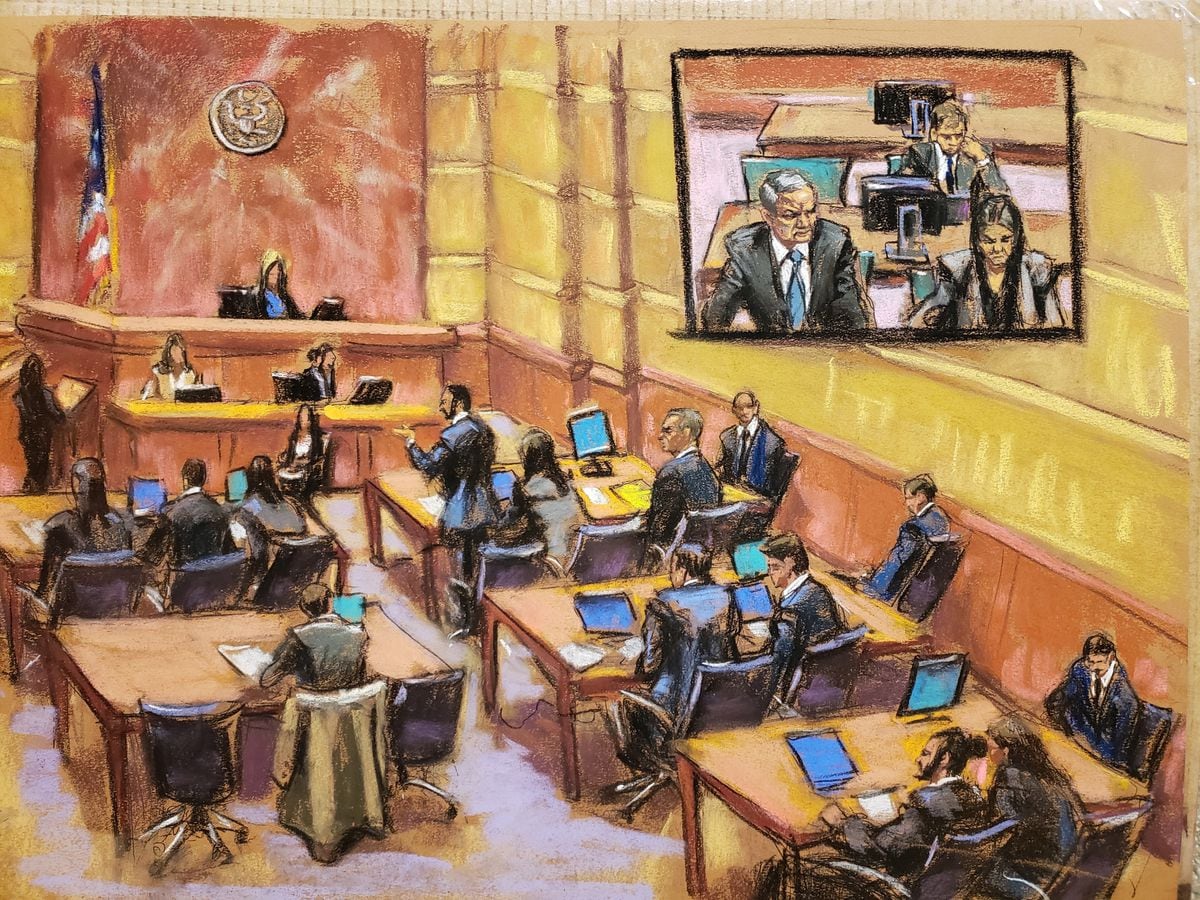Seven women and five men will judge Genaro García Luna.
The selection of the jury for the trial against the Secretary of Security of the Government of Felipe Calderón concluded this Thursday, after three consecutive days of interviews with more than a hundred candidates.
The 12 chosen will ultimately decide whether the former Mexican official is guilty or innocent of the five charges against him in the United States: three for drug trafficking, one for organized crime and another for false statements.
“Congratulations and thank you for your willingness to serve,” Peggy Kuo, the magistrate who conducted the selection process, told the members.
The identities of the jurors will not be released, although certain details were made public during interviews in the Eastern District Court of New York.
It is a diverse panel in terms of age, ethnic origin and socioeconomic profiles.
There are, for example, several people with relatives in the security forces and others with relatives who are serving a sentence and are incarcerated.
Some are assertive, others are rather shy or hesitant.
Their opinions and experiences also differ regarding the issues that cross American society and, in particular, New York society, such as the housing crisis,
The defense insisted a lot this week on knowing what the candidates of the police and other agents of the security forces thought, as well as that they were accused of crimes for corruption or drug trafficking.
His client was the head of the Federal Police.
Prosecutors placed more emphasis on finding out how potential jurors would position themselves in the face of multiple cooperating witnesses being called to the stand, criminals who are willing to testify in exchange for reduced sentences.
The list of witnesses for the Prosecutor's Office has more than 70 names and it appears that many of them are former drug lords, arrested during the Calderón government and imprisoned in the United States.
After a marathon of more than 20 hours of face-to-face interviews, six substitutes were also chosen in the process: three men and three women.
Jury selection became a chess game between the prosecution and the defense.
Both parties sought to integrate the largest number of profiles that could be most receptive to their arguments, among the 40 candidates who went to the last stage, and each side could veto three people who seemed too biased or partial.
The selection was a tedious procedure for everyone: the citizens who participated, the protagonists who conducted it, and the reporters who appeared in court.
But it is also a decisive phase that can become the faithful of the scale and that in the final stretch was not exempt from a dose of drama.
The paradox is that the defendant's lawyers and the prosecutors have to agree to come up with a final list.
For about an hour, the parties discussed their options separately, huddled at one end of the room and negotiated quietly as the silently waiting candidates watched.
The press room, on the other hand, roared just a corridor away.
García Luna looked thoughtful and seemed somewhat worried.
He remained seated in front of a court table and turned his chair so as not to turn his back on the people chosen to decide his fate, but he also avoided meeting their eyes.
He raised a pen to his mouth, rested his head on one of his hands, and stared into space.
Lawyers came and went, but he just waited and took a deep breath.
It's not that he didn't understand the process.
One of his legal representatives recounted in an informal chat that during the sessions he communicated with his client in English.
He exchanged a few words with them before the jury joined.
He was, above all, abstracted.
Next Monday the initial arguments begin before Judge Brian Cogan, the same one who sentenced Joaquín
El Chapo
Guzmán in July 2019. It is a stage in which the most eloquent lawyers of the Prosecutor's Office and the defense will present their arguments for the first time before the judge.
They will seek to move them, empathize with them and, if they are successful, begin to convince them.
The trial schedule states that hearings will take place Monday through Thursday, with no sessions on Fridays and weekends.
subscribe here
to the EL PAÍS México
newsletter
and receive all the key information on current affairs in this country

